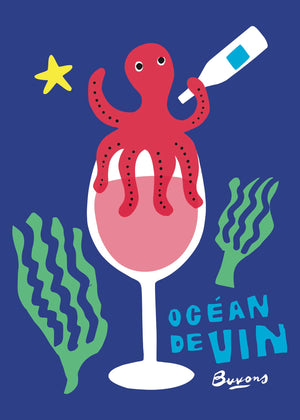
Grapes: Gewurtztraminer + Pinot Gris
Region: Alsace, France
Vintage: NV
Viticulture: Organic + Biodynamic practicing
Soils: Marl Limestone + Clay
Vinification: Blending of 2 different vintages. The first vintage is vinified with maceration on the skins for 8 months and the second vintage with maceration on the skins for 8 days
Aging: 12 months in old centenary oak barrels
Fining or Filtering: None
Sulfur: Minimal added
Notes from the Importer: This cuvée was originally inspired by Severine Peru formerly of Ten Bells in New York City and was an exclusive wine sold only there, but now is available for everyone to enjoy (although in very small quantities). The name is a macabre play on words – the French pronunciation of Si Rose is the same as cirrhosis, hence the liver on the label.
The Binners have been farming in the village of Ammerschwihr since 1770, first in polyculture, and since WWII as full-on wine growers. Christian was lucky that his ancestors, although never officially certified, always worked the land in the organic spirit. “Even in the 1950s, when mechanization and fertilizers started to take over, my father quickly realized that he preferred to continue to work as he was used to, i.e. with a lot of handwork, manure and natural treatments for the vineyards. Thanks to this, we have this enormous luck of having vines as old as the 1930s, planted by my grandfather, that never saw chemicals in their life,” Christian retraces the family history. His father Joseph was similarly careful in the cellar, and, with the help of the legendary Beaujolais grower and natural wine trailblazer Marcel Lapierre, who became a family friend, they were already making wines without added sulfur in the 1990s.
With Christian at the helm, the Domaine Binner doubled down in this direction during the 2000s, becoming certified organic and delving deep into biodynamics while taking inspiration from working with winemaker Pierre Masson, the local pioneer of Steiner’s philosophy. “The biodynamics opens yet another social, farming and autonomous dimension of winemaking – one with way more passion and human touch,” Binner explains what led him to adopt this approach over 10 years ago, topping it off with an official Demeter certification in 2020. For Christian, it’s not just about the soil health – he convincingly describes how all the little steps that form the day-to-day biodynamic practice, from collecting the herbs used in tisanes for the vines’ immunity, folding the grass under the vine instead of mowing it, doing most of the vineyard work including spraying by hand, or working the soil with horses rather than tractors, also create a strong connection to his vines and to the local community.
Inspired by the success of the biodynamics he’s witnessed in the vineyards and the one-of-a-kind architecture of Goetheaneum, Steiner’s fascinatingly odd HQ situated in the Swiss village of Dornach, Binner has also had a special bioclimatic underground cellar constructed. The building took more than 5 years of careful planning and construction, and it represents a unique amalgam of local materials (such as pink sandstone from a Vosges quarry, firs and oak trees from forests near Ammerschwihr), savvy engineering and anthroposophical principles. There are no right angles or hard edges, and everything flows in curves. “And all the materials are placed the way they’re found in nature. The beams are positioned roots-down, and the stones are all orientated in the same way as they were before being quarried. This maintains proper polarization and design flow,” Binner describes in his Pipette interview how deep into detail they went during the cellar’s conception.
Both levels of the winery keep the temperature naturally stable, which has allowed Christian to make wines with better peace of mind and longer evolution. “I see how serene the people who work here feel, including me, and think the same goes for the microbiological population,” he laughs, adding that they’ve observed way less taste deviations in their wines since moving to the new facility. Keeping the yeast and bacteria happy is very important here – the Binner wines haven’t seen any added SO2 since 2013, and hence benefit from spending some time in the cellar in order to stabilise naturally. “As Marcel Lapierre used to say, natural wine should be good above all. No matter who you give it to, they should like its taste, without reservations,” Christian believes.
In 2015, Binner also started Les Vins Pirouettes, a smart collaborative project that helps his fellow Alsatian organic and biodynamic growers “who don’t always have the time or drive to deal with branding” to make zero-sulfur wines in their own cellars. The result is an uber-popular range of lovely wines (which have the pleasure of importing to the States as well; more on them here), confirming Binner as a truly innovative force in Alsatian wine making – a beautiful legacy for a winemaker who still has many more vintages to look forward to.




